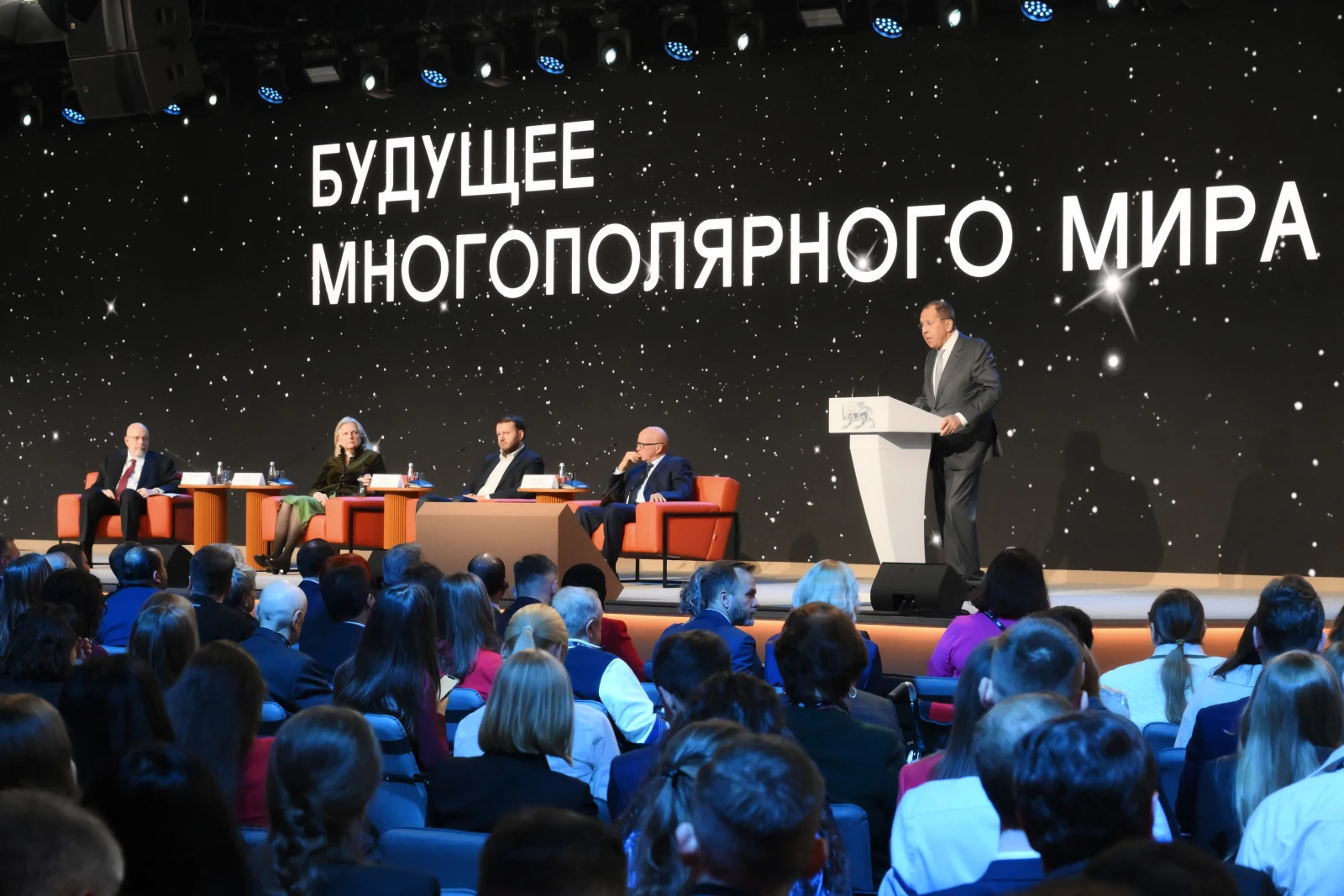Strengthening the multipolar world discussed at the "Inventing the Future" Symposium

Participants in the panel discussion "The Future of the Multipolar World," held at the International Symposium "Inventing the Future" at the National Centre RUSSIA, discussed the formation of a new world order and the prospects for international relations development.
"Today, in an era of rapid change, we are certainly interested in scientists, thinkers, futurists, and visionaries who possess imagination and the ability to think outside the box, attempting to look beyond the horizon and contribute to understanding current processes, forecasting, and modeling new forms of international life that will correspond to the altered realities, and, in my opinion, should be based on the enduring principles of the UN Charter. If they are not fulfilled, it is not because they are bad or unjust. They are just, which is precisely why the West does not want to implement them — because justice is not a characteristic of a world system that the West has created and wishes to preserve despite the objective historical trends towards strengthening multipolarity," stated Sergei Lavrov, Minister of Foreign Affairs of the Russian Federation.
According to him, the entire millennium-long experience of Russian statehood, which will be represented at the National Centre RUSSIA, should serve as a powerful stimulus for the creative activity of civil society in Russia. Sergei Lavrov also noted that the results of the discussions at the Symposium will serve as a foundation for the reflections of practicing politicians.
"I will risk suggesting you to ponder when and if the West will reconsider its stance, and when it will awaken its conscience. Such a plot, in my opinion, would be interesting. And when in the West — where there are still many smart people — they will understand that neocolonial tendencies are harmful, including to the West itself, that arrogance destroys its reputation... I also urge you to imagine what the countries of the global majority should do to expedite the process of enlightening our Western colleagues, who, for the future of their own peoples as well, must realize: they need to behave decently," he added.
Maxim Oreshkin, Deputy Chief of Staff of the Presidential Executive Office of the Russian Federation, in his speech noted the growing role of BRICS in the global economy. He emphasized that future economic growth will occur due to those countries that gathered at the BRICS Summit in Kazan in 2024.
"The BRICS countries must play a crucial role in creating conditions for such growth — technological, personnel, logistical, financial — through the implementation of a large number of initiatives that have been formed at the BRICS platform, are actively developing, and will drive the economy forward," stressed Maxim Oreshkin.
The BRICS ideology attracts countries due to its adherence to two principles: resolving all issues through consensus and working on a positive agenda, he noted. The union aims to jointly seek ways to improve the world, its development, and the quality of life for people.
"The position of Russia and other BRICS countries is proactive. Some things are better done quietly, without attracting attention. Today we are discussing how the Russian economy has emerged from the pressure of recent years. This has been possible due to proactive policies, especially after 2014. A great many institutions were created within the Russian economy that allowed us to rely on them. And in 2022, our response was not merely a reaction to the negative pressure from Western countries but proactive measures that allowed us not only to minimize negative consequences but also to gain significant positive benefits," added Maxim Oreshkin.
Other participants in the discussion also included the Head of the Geopolitical Observatory for Russia's Key Issues - G.O.R.K.I. Centre at the St. Petersburg State University, Karin Kneissl, who served as Austria's Minister of Foreign Affairs from 2017 to 2019, and John Stuart Durrant, the Honorary Consul of the Russian Federation in St. John's, Canada.
"The scale of the Symposium is truly impressive. It is very important to talk about the future, and when we discuss the future, we are speaking about the confidence with which we move forward. I may be somewhat old-fashioned in matters of diplomacy, but I still believe that a factor of healthy curiosity and dialogue, with an individual at its centre, is very important in relationships between countries. It is the people who shape the relationships between states," emphasized Karin Kneissl.
John Stuart Durrant noted that universal human principles will help the global community achieve a bright future in the context of the multipolar world.
"Now, in our world characterized by hard power and conflicts, soft power is becoming increasingly important. We need people to understand each other. Love, compassion, neutrality, impartiality, and respect for individuals will help us ensure a bright future," stated John Stuart Durrant.
The discussion was moderated by political scientist Dimitri Simes.
The International Symposium "Inventing the Future" is being held from November 4 to 6. Participants include scientists, researchers, futurists, science fiction writers, and representatives from government bodies from 101 countries, including Russia, India, Italy, Iran, China, the UAE, Serbia, the USA, and France. The program features over 60 sessions across four tracks: "Future of Human," "Future of Technology," "Future of Multipolar World," and "Future of Civilizations." The program and event broadcasts are available at the website future.russia.ru.
The International Symposium "Inventing the Future" is the first event of the National Centre RUSSIA, which was established on July 1, 2024, by the order of President of the Russian Federation Vladimir Putin. The Centre aims to preserve the legacy of the International RUSSIA EXPO and showcase the achievements of the country and its citizens. The work of the Centre involves federal authorities, state companies, corporations, and regions.
